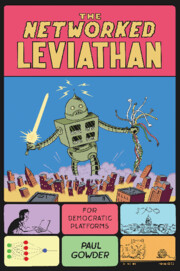The Networked Leviathan
Governments and consumers expect internet platform companies to regulate their users to prevent fraud, stop misinformation, and avoid violence. Yet, so far, they’ve failed to do so. The inability of platforms like Facebook, Google, and Amazon to govern their users has led to stolen elections, refused vaccines, counterfeit N95s in a pandemic, and even genocide. Such failures stem from these companies’ inability to manage the complexity of their userbases, products, and their own incentives under the eyes of internal and external constituencies. The Networked Leviathan argues that countries should adapt the institutional tools developed in political science to democratize major platforms. Democratic institutions allow knowledgeable actors to freely share and apply their understanding of the problems they face while leaders can more readily recruit third parties to help manage their decision-making capacity. This book is also available Open Access on Cambridge Core. For more information, visit https://networked-leviathan.com.
Paul Gowder is a law professor and political scientist who has written extensively on the problem of holding lawful systems of governance accountable to their constituents. He is the author of The Rule of Law in the Real World (2016). He has also served as a consultant in Facebook’s Civic Integrity and Public Policy Research teams, where he participated in the design of the Oversight Board, and is a Founding Fellow and board member of the Integrity Institute.

